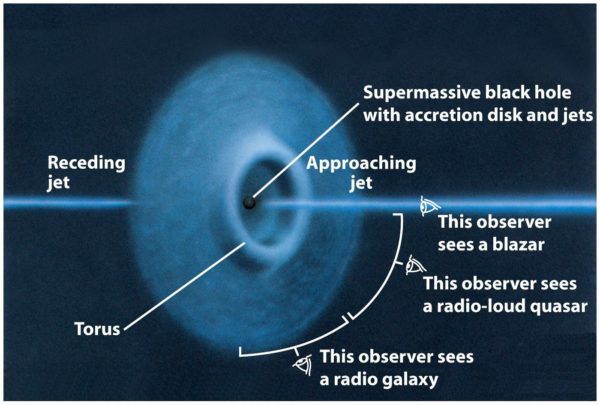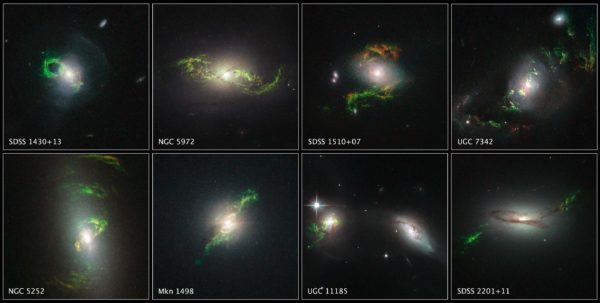"I'll never, ever be full. I'll always be hungry. Obviously, I'm not talking about food." -Dwayne 'The Rock' Johnson
Only a very small percentage of galaxies have active supermassive black holes. While the black holes themselves are common, they only rarely feed, gaining a huge influx of matter to accelerate and send jets and other emission out. When a galaxy does become active, they can appear in any number of interesting manifestations, dependent on their orientation relative to us.
 The unified model of AGNs/Active Galactic Nuclei. Image credit: Robert Antonucci, aka Ski, of http://web.physics.ucsb.edu/~ski/skipicture-1.html.
The unified model of AGNs/Active Galactic Nuclei. Image credit: Robert Antonucci, aka Ski, of http://web.physics.ucsb.edu/~ski/skipicture-1.html.
But most galaxies, on human timescales, will either appear permanently off or on. A galaxy can turn on from a merger, accretion or just a chance encounter with a star cluster or gas cloud, but for the first time, we’ve seen one turn on and then off in great detail. As it turns out, the X-ray emissions are key to watching the feeding stop, and seeing the galaxy fade as a result.
 The bright emissions extending past the edge of the galaxies are evidence of prior AGN activity, but the central black holes are too dim now. Image credit: NASA / ESA / W. Keel, University of Alabama.
The bright emissions extending past the edge of the galaxies are evidence of prior AGN activity, but the central black holes are too dim now. Image credit: NASA / ESA / W. Keel, University of Alabama.
Come get the amazing story in pictures, video and 200 words, top, on today’s Mostly Mute Monday!

Is the BH eating, or being spoon fed?
As a layman, I have a question: Why isn't our universe a black hole? Certainly at the time of the big-bang there was plenty of mass, in a small enough space, to create a black hole.
If we are in a black hole, the event horizon would be far out in space, given the total mass of the universe.